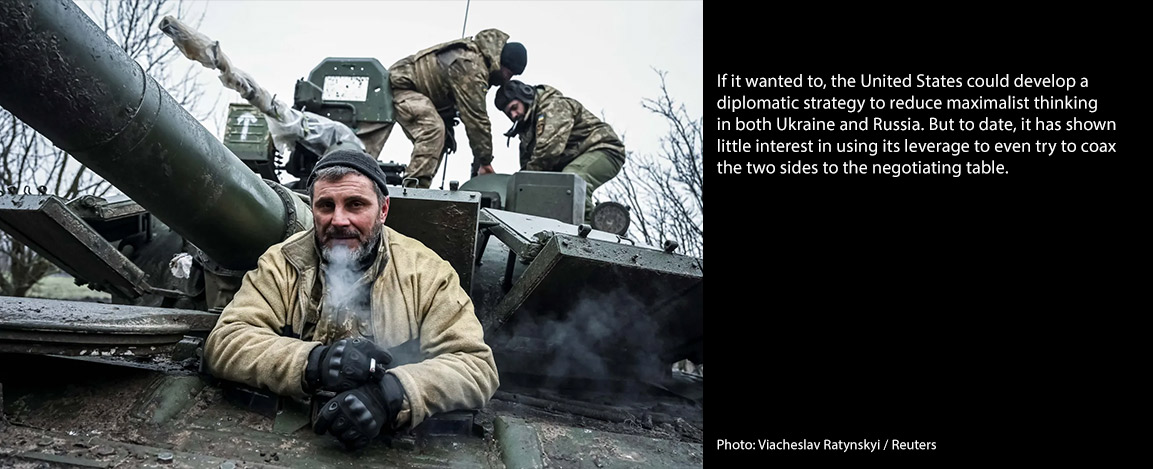Ford International Professor of Political Science Barry R Posen argues that Russian collapse in Ukraine is unlikely and that the most promising course is a negotiated end to the war. This article was originall published here in Foreign Affairs. An excerpt is featured below.
"All the dumb Russians are dead.” So said Ukrainian officials in July 2022 as they sought to explain why the Russian army had abandoned the overambitious strategy and amateurish tactics that defined its conduct in the early weeks of the war. It was probably too early to make this quip. The Russians continued to do many dumb things and indeed still do. But broadly speaking, the Ukrainians’ intuition in the summer now appears correct: when it comes to overall military strategy, Moscow seems to have gotten smarter.
Russian strategic decisions are finally starting to make military sense. The partial mobilization of reservists that Russian President Vladimir Putin ordered in September has strengthened Russian forces at the front. The bombing campaign against Ukrainian energy infrastructure that began in October is forcing Ukraine and its allies to divert resources toward the defense of the country’s urban population, vulnerable to bitter winter weather in the absence of electricity. And the withdrawal of Russian forces from the city of Kherson in November has saved capable units from destruction and freed them for action elsewhere.
In July, I argued that the war was stalemated. Given Ukraine’s subsequent successes in liberating territory in and around the cities of Kherson and Kharkiv, my assessment was clearly premature. But it is worth noting that Ukraine achieved these successes during the period in which Russia’s forces were at their weakest and its leadership was at its poorest. Despite Kyiv’s advances, the grim truth remains that then and now, the ratio of Russian casualties to Ukrainian casualties stands at one to one, according to U.S. estimates.
This is not a war that is simply cascading in Ukraine’s favor. Rather, it is turning into a war of attrition, a contest in which any gains by either side will come only at great cost. Even the dim outlines of this future should make both Ukraine and Russia wish to avoid it, but neither country seems ready to negotiate, much less make the difficult compromises that might provide the ingredients of a settlement.
Ukraine and its backers may hope that Russia comes to its senses and simply abandons the war, but that outcome looks unlikely. They may also hope for a Russian collapse at the front or at home, but the chances of either scenario are also slim. The most promising course would be for the United States to nudge the two sides to the negotiating table, since only Washington has the power to do so. But it has decided not to do so. And so the war goes on, at a tragic human cost.
Read the full article here.




